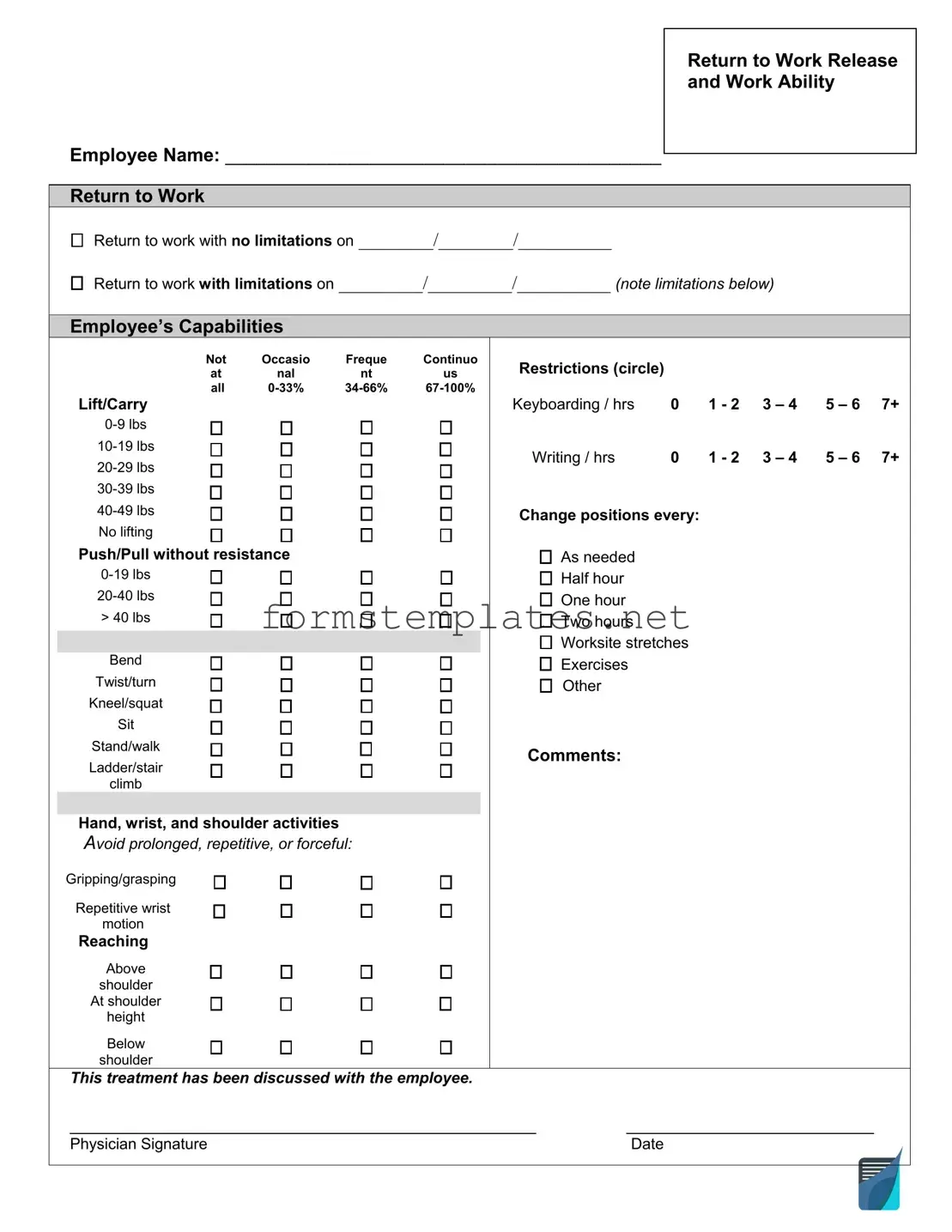Free Work Release Template
The Work Release form is a legal document that allows individuals to participate in employment while serving a sentence or awaiting trial. This form facilitates the transition from incarceration to the workforce, promoting rehabilitation and community integration. Understanding its purpose and requirements is essential for both individuals and legal professionals navigating the justice system.
Open Editor Now

Free Work Release Template
Open Editor Now

Open Editor Now
or
⇓ PDF Form
Your form still needs attention
Finalize Work Release online — simple edits, saving, and download.
